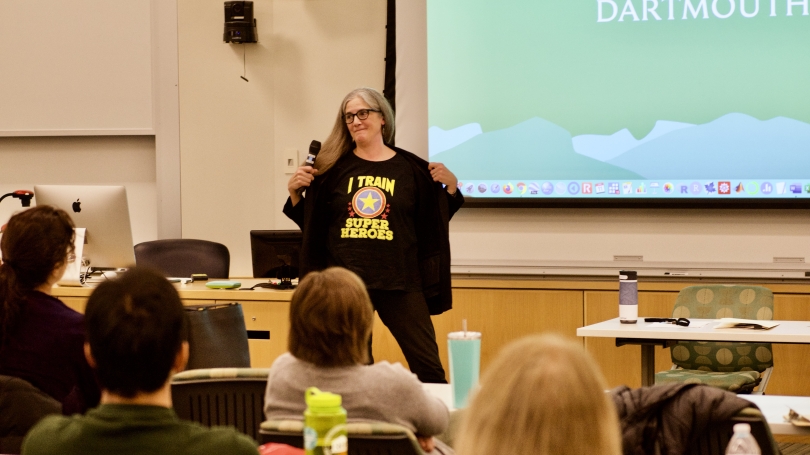
- Public Policy
- Leadership
- Funding
- News & Events
- About the Center
Back to Top Nav
Back to Top Nav
Back to Top Nav
Back to Top Nav
The eighth annual Physicians for Human Rights (PHR) conference at Dartmouth took place on January 10th and 11th, 2020, and was organized by the Nathan Smith Society and the Geisel Physicians for Human Rights group. This year’s conference, “A 20/20 Vision for Our Children’s Future” was dedicated to the subject of our youth, and encompassed their rights, wellbeing, and standards of upbringing. Experts from legal, academic, and clinical backgrounds were invited to share their knowledge and findings on how best to ensure that children in today’s world thrive throughout their development and into adulthood.
It is especially important to address challenges in children’s health right now, as the advent of new technologies seems to be presenting a double-edged sword for the wellbeing of adolescents. On the one hand, it is enabling behavioral trends which are worrisome for many parents and health professionals. Among them, one alleged threat to children’s livelihood which figured prominently in the conference was vaping. In one panel discussion, specialists discussed how youths are maliciously drawn to use dangerously addictive and toxic electronic cigarettes through deceptively kid-friendly marketing tactics. Likewise, experts offered updated recommendations on how to offset the known negative effects of extended screen time on the psychological and physical wellbeing of children. However, even with its potentially harmful implications on the health of our youth, technology also showed itself to be a force for good at the conference. For instance, a revolutionary suicide prediction and intervention tool, which is accessed by teenagers through familiar social platforms, was a focus of one of the panelists.
Aside from technology, legal matters, particularly those concerning indigenous children who have been historically neglected by the law, were brought to attention. A Friday evening screening of the film Dawnland opened the conference, documenting the egregious displacement of Native American children from their Wabanaki communities by the Maine welfare system in the 1950’s. A discussion with co-producer and Dartmouth faculty member N. Bruce Duthu accompanied the screening and served as an eye-opening introduction to the rest of the conference, which continued the following morning.
Community members, students, and speakers had many chances to interact and build lasting connections throughout the conference, whether through informal conversations over light breakfast and lunch, panel discussions, table presentations, or Q&A sessions. A new idea employed this year was to allow visitors to write their personal reflections on notes and post them on a publicly viewable wall in the Life Sciences Center. Attendees commented favorably on the “interdisciplinary approach” of the conference, which sought to bring forth the perspectives of experts involved in fields spanning medicine, the humanities, and business. The wall of reflections represented an overwhelming sentiment on the importance of the event in fostering the advancement of our understandings on how best to treat children. The conference was successful not only in spreading new information, but also in cultivating further curiosity on the subject of children’s health, with every talk ending in a multitude of questions and follow- ups. Ultimately, the PHR conference achieved its goal of invoking the role of medicine in promoting social wellbeing. We hope to continue holding this symposium of groundbreaking thought and inspiration for solving pressing global issues.
-Submitted by Stanley Rozentsvit '21, Rockefeller Center Mini Grant Recipient
The Rockefeller Center's Mini-Grants program funds registration fees for students attending conferences, as well as the costs of bringing guest speakers to Dartmouth. The views and opinions expressed here are the author’s own and do not necessarily represent the views and opinions of the Rockefeller Center or constitute an endorsement by the Center.